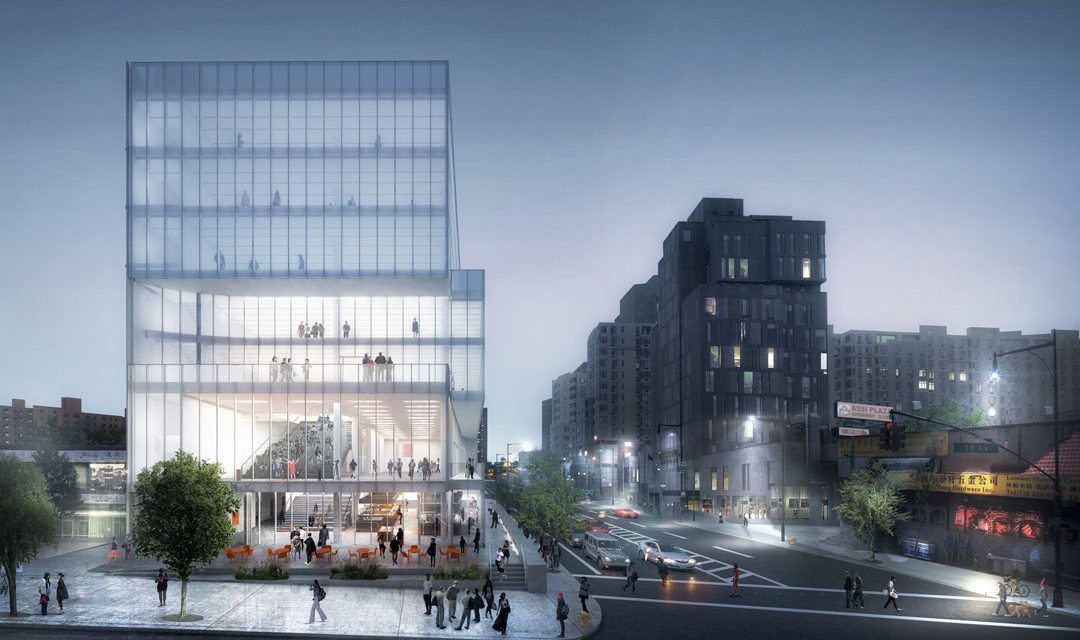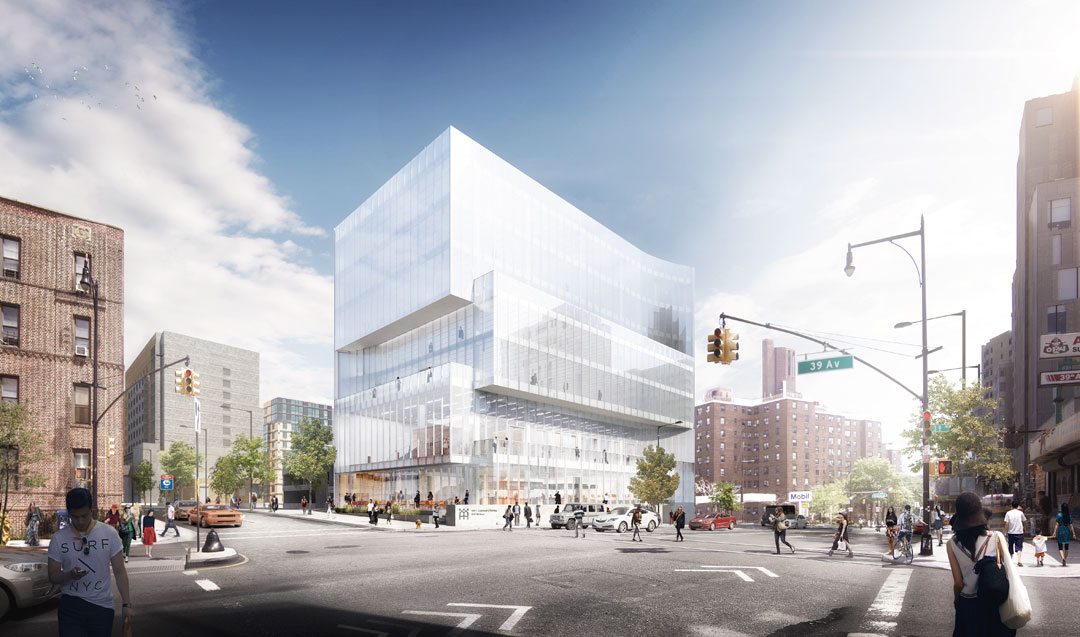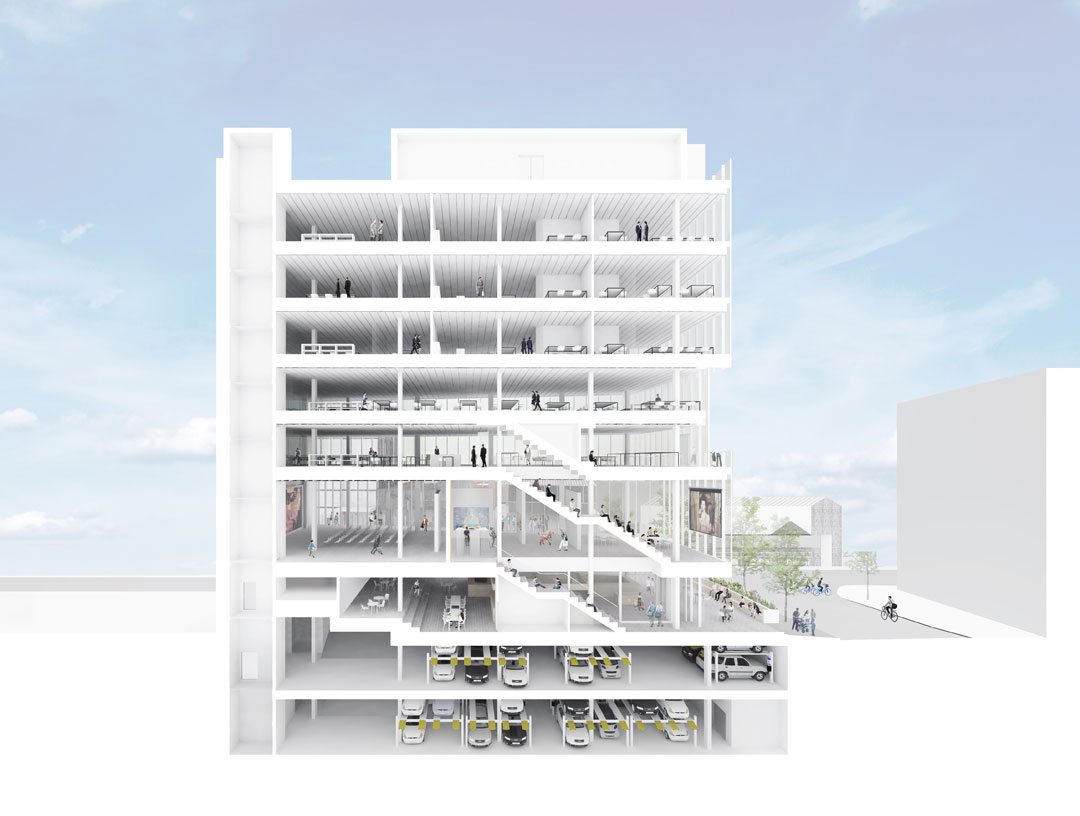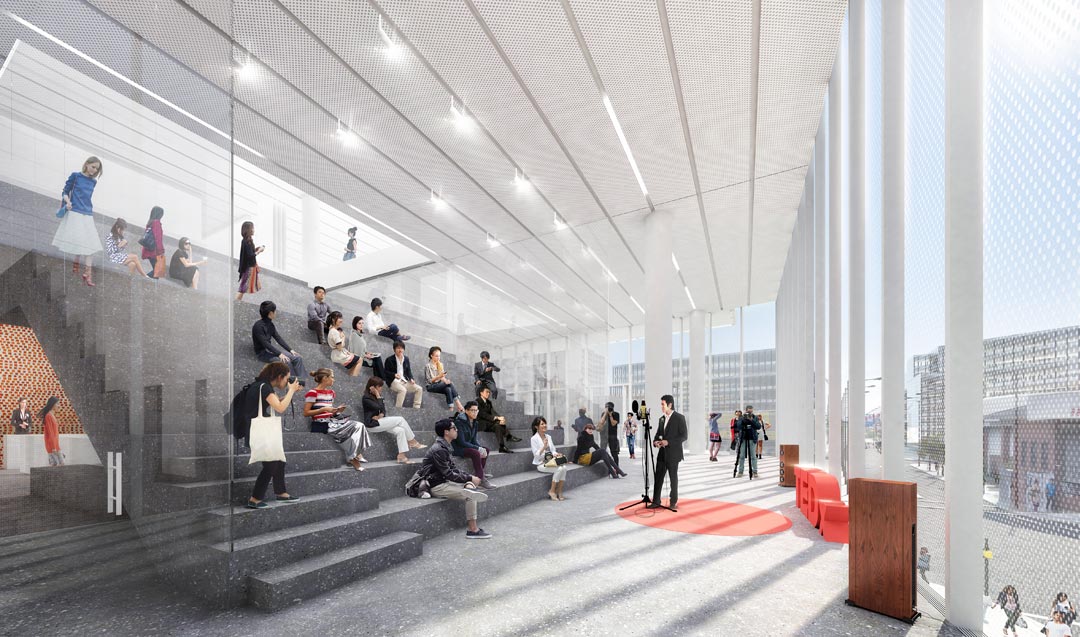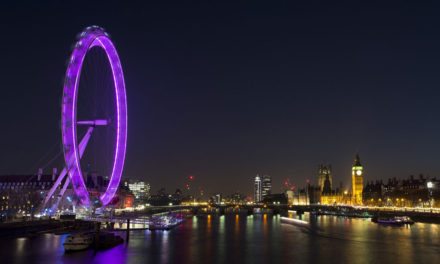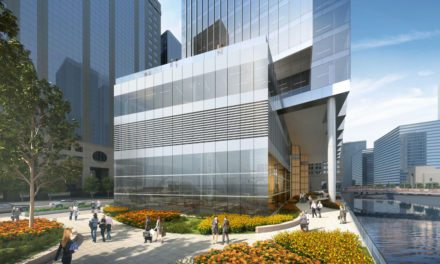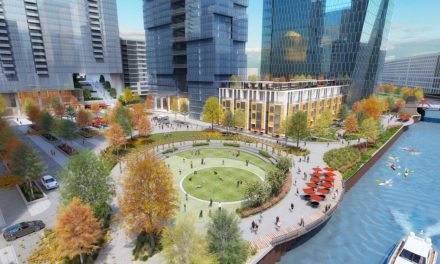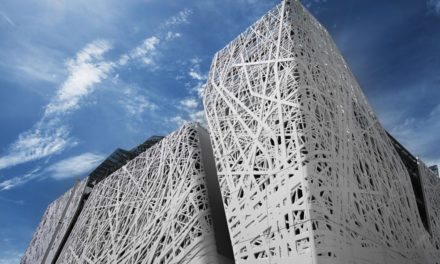JCJ Architecture and Leong Leong today unveiled the design of the Center for Community and Entrepreneurship, a new mixed-use community building for the non-profit organization Asian Americans for Equality (AAFE). Expected to be complete in 2018, the 90,000-square-foot, 7-story building will be located at the corner of College Point Boulevard and 39th Avenue in Flushing, Queens.
Since its inception in 1974 as an equal rights advocacy group, AAFE has worked tirelessly to provide a range of support services – such as affordable housing, counseling and financial assistance, and community development – to enrich the lives of Asian Americans and others in need throughout New York City.
“JCJ’s core belief is that strong design builds communities, and it is truly inspiring to bring a structure to life that is completely in concert with AAFE’s mission,” said Peter Bachmann, Principal and Institutional Market Leader at JCJ Architecture, which serves as the Executive Architect on the project. “This mission inspired JCJ and Leong Leong to design a progressive building form modeled after the concept of holding hands and interweaving fingers – a physical presence to match the social symbol for community empowerment.”
“The goal of this project was unique from the start: to create a vertically-integrated community for Flushing that seamlessly links work, events, and the public. The informal spaces of circulation become primary spaces for interaction and exchange – we turned the architectural promenade into an vertical interface that blends public space and work space,” said Chris Leong, partner at Leong Leong, which serves as the Designer on the project. “We are in new paradigm of urbanism where the interconnectivity between spaces of collaboration and the city is critical,” added Dominic Leong, partner at Leong Leong.
AAFE’s Center for Community and Entrepreneurship will express a clear progression of growth; as one advances in the community, one also moves up in the building.
- A sweeping outdoor plaza, designed as an interface to the surrounding neighborhood, connects a 5,000-square-foot public market to the street.
- On the second level, a flexible, multi-purpose event space can be configured for community programs, meetings, exhibitions and performances. Large doors open onto a terrace, allowing the event space to expand to the exterior.
- On the third floor, Flushing’s first business incubator will provide co-working space for local small businesses and start-ups to collaborate with one another.
- AAFE’s Flushing program offices will be located on the fourth floor, and office spaces available to emerging and established businesses – potentially those from the incubator – will occupy floors five through seven.
- A 3-story open staircase functions as a vertical interface between floors encouraging collaboration and interaction among its varied users. At the ground floor, the staircase provides terraced seating for the public market. On the second and third floor, the staircase can transform into an event and performance space for screenings, lectures and other community-based events.
Four interlocking structures with outdoor terraces — each corresponding to the public market space, event space, incubator space, and office space — give the building its distinct form. This form is articulated by a gradient of vertical transparencies that emphasize its distinct silhouette. The more transparent lower two floors contain the most public programs and support direct engagement with the neighborhood at street level. As the programs become more private on the upper floors, the exterior becomes more opaque while still internally supporting views of the city and the Flushing Creek waterfront.
“This building will allow AAFE to reach its fullest potential, supporting our mission to generate small business opportunities, provide local services and foster community interaction,” concluded AAFE’s Executive Director Christopher Kui. “Every aspect of the project’s design has been shaped to ensure that this will become a vital hub for economic development in Flushing, while creating an engaging statement about the values of the AAFE organization and our community.”
About JCJ Architecture
Founded in 1936, JCJ is headquartered in Hartford with offices in Atlanta, Boston, Los Angeles, New York City, Phoenix and San Diego. The firm is recognized nationally as one of the country’s most respected architecture firms, providing clients with comprehensive planning, programming, architectural and interior design services. With a long standing reputation for creativity, project delivery excellence and a strong business acumen, JCJ Architecture works across a broad range of building types including civic, K-12, higher education, sports and recreation, hospitality and entertainment. For more information, visit www.jcj.com.
About Leong Leong
Leong Leong is an award-winning design firm established in New York in 2009. With a focus on architecture that generates cultural resonance, Leong Leong has completed a range of projects in Venice, New York, Los Angeles, Hong Kong, Seoul, and Napa Valley. Current projects include the Anita May Rosenstein Campus for the Los Angeles LGBT Center in Hollywood, California. Leong Leong recently completed the design of the U.S. Pavilion of the 14th Venice Architecture Biennale in 2014. In 2011, Architectural Record magazine featured Leong Leong as one of seven emerging architecture firms from around the world in its annual Design Vanguard issue. The American Institute of Architects selected Leong Leong for its New Practices award in 2010. The firm’s work has been featured in the New York Times, Wallpaper, Surface, Dwell, CNN, Monocle, Interior Design, Detail, A+U, Architectural Record, Pin-Up, and other international press outlets. For more information, visit www.leong-leong.com.
About Asian Americans for Equality (AAFE)http://www.jcj.com/
Asian Americans for Equality (AAFE) is a non-profit organization dedicated to enriching the lives of Asian Americans and all of those in need. Founded in 1974 to advocate for equal rights, AAFE has transformed in the past four decades to become one of New York’s preeminent housing, social service and community development organizations. AAFE is committed to preserving affordable housing throughout New York and to providing new opportunities for the city’s diverse immigrant communities. Employing innovative approaches, the organization has preserved and developed 86 buildings, creating more than 800 units of housing. It has secured over $378 million in mortgage financing for homebuyers and disbursed over $44 million in loans to over one-thousand small businesses. Through a wide range of multilingual counseling services, AAFE provides education, financial assistance and training to empower people, small businesses and neighborhoods.
SOURCE JCJ Architecture

